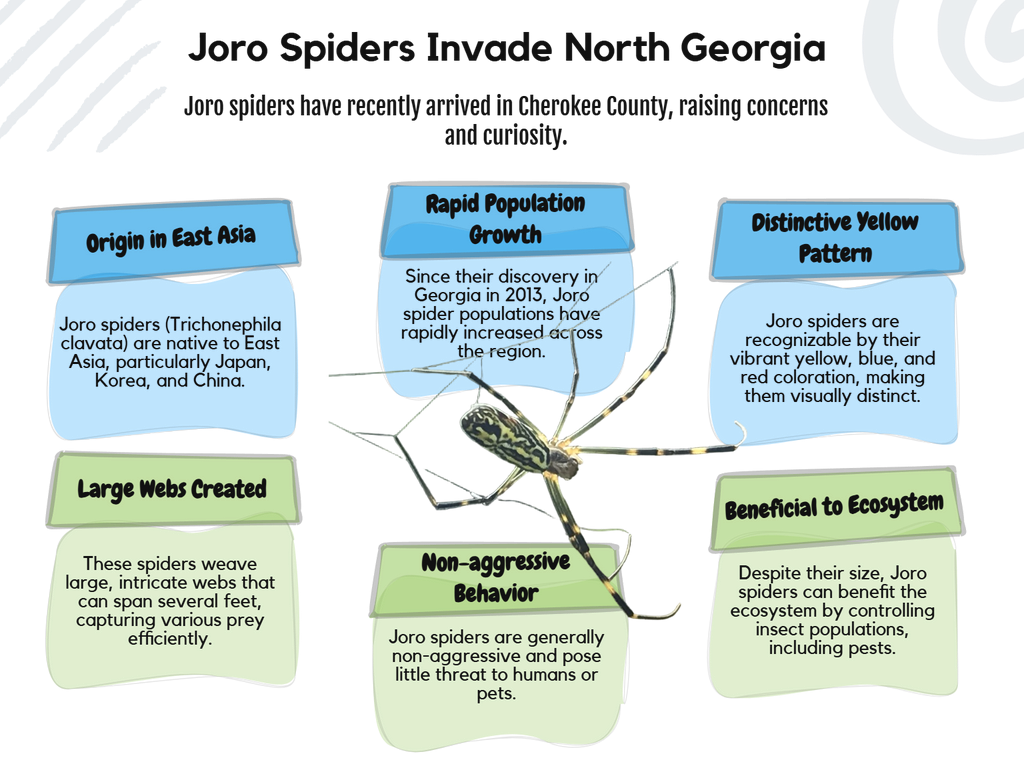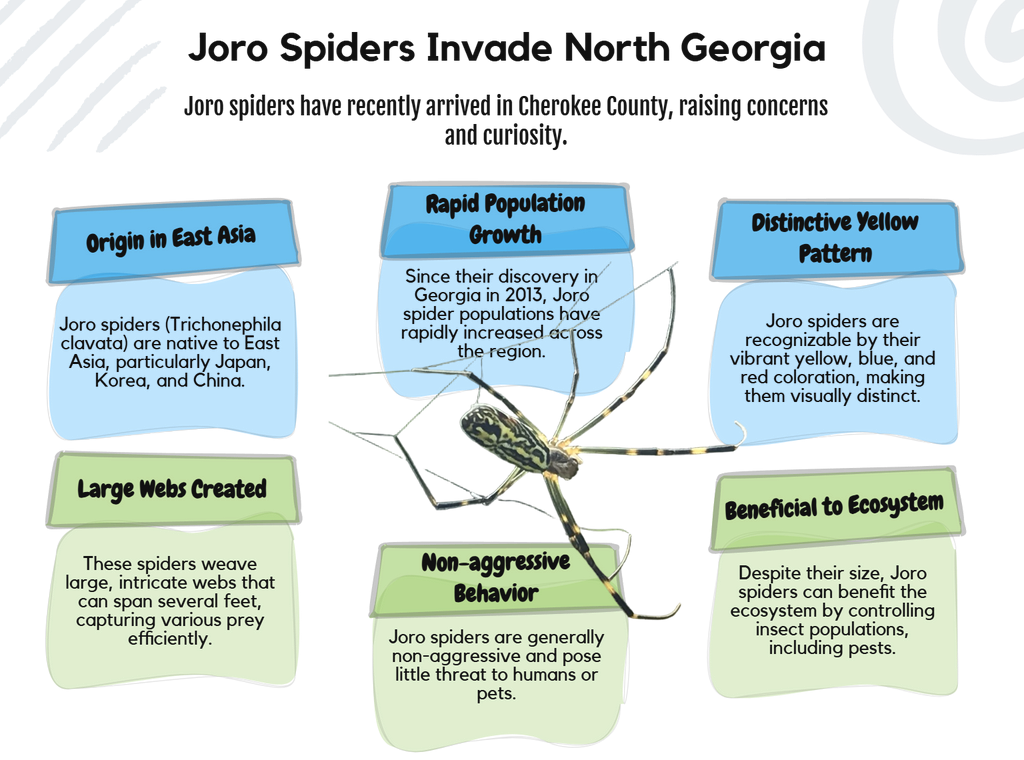"The Sky's Invasion: Cherokee County Overrun by Unexpected Hitchhikers!"
The 575 Insider
Archives
"The Sky's Invasion: Cherokee County Overrun by Unexpected Hitchhikers!"
SIGN UP FOR OUR NEWSLETTER
The Flying Invasion: How Unexpected Hitchhikers Conquered Cherokee County |
These palm-sized "parachuting" spiders traveled 7,000 miles to make your backyard their new home |
Cherokee County has become ground zero for one of Georgia's most significant ecological developments: the establishment of the Joro spider (aka the "Trichonephila clavata").
With 392 documented sightings in our county alone, these striking arachnids represent a textbook case of successful inadvertent biological invasion that began just over a decade ago.
The Scientific Story Behind the Spread
Joro spiders arrived in Georgia around 2013 through international shipping containers, likely via cargo passing through the Atlanta area. Native to East Asia—spanning Japan, China, Korea, and Taiwan—these spiders found Georgia's climate remarkably similar to their ancestral home. Initial populations established near Braselton have since expanded 75 miles in all directions, with Cherokee County emerging as a major population center.
The Mechanics of the Migration
What makes Joro spiders particularly successful invaders is their unique dispersal mechanism called "ballooning." Young spiderlings release silk strands that catch air currents, enabling them to travel 50 to 100 miles through the atmosphere. This natural parachuting system allows the species to spread approximately 10 miles per year without human assistance, though hitchhiking on vehicles accelerates their expansion significantly.
Why Cherokee County?
Scientific research reveals that Joro spiders possess superior cold tolerance compared to related species—they maintain 77% higher heart rates and double the metabolism when exposed to cold temperatures. This physiological advantage allows them to survive Georgia's winter conditions that would kill other orb-weaver species. Combined with their prolific reproduction—females lay 400 to 1,500 eggs annually—these factors create ideal conditions for population growth.
Environmental Impact and Community Response
While classified as invasive, Joro spiders primarily feed on flying insects, potentially providing natural pest control services. Their large, golden webs have become increasingly visible throughout Cherokee County's neighborhoods, parks, and wooded areas, particularly during late summer and fall months.
Looking Forward
Research indicates that Joro spiders will likely continue expanding throughout the Eastern Seaboard. For Cherokee County residents, coexistence appears inevitable. Understanding their biology, behavior, and ecological role helps our community make informed decisions about managing this permanent addition to our local ecosystem.
The Cherokee County Extension Office provides additional resources for residents seeking more information about invasive species management. |


